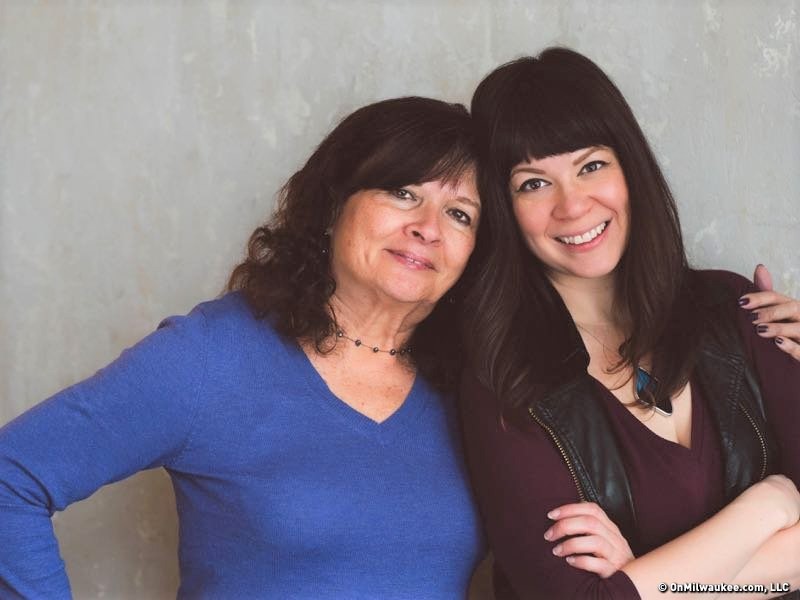Yvonne Kaminski (left) was urged by her daughter, Jessica, (below right) to attend a meeting of the local NSDA Spasmodic Dysphonia Support Group in Milwaukee, WI. It was there that she received encouragement to give treatment another try and was referred to Dr. Joel Blumin. The results from that visit made the local news, including a story in the publication, “On Milwaukee” and an interview with the news station, WTMJ, in Milwaukee (see links below). Yvonne also shared her experiences with the NSDA.

How long have you had SD? What form of spasmodic dysphonia do you have? I have had adductor Spasmodic Dysphonia for 16 years.
Looking back, were you experiencing subtle changes in your voice prior to the onset of SD? Prior to the onset of SD, I would say that my voice was never very loud or strong.
What was the most difficult part of dealing with SD before you were diagnosed? The most difficult part of dealing with SD before I was diagnosed was feeling scared about not knowing why my voice was becoming so different – always cracking and I couldn’t carry on a conversation or talk well on the phone.
How long did it take you to get diagnosed? It took a couple of years before I was diagnosed.
What do you wish people understood about having SD? I wish people would understand that I am still the same person inside in spite of my SD, that I do not have a cold or laryngitis, and that this is a neurological disorder with no cure.
How has it affected your nursing career? Having SD has affected my nursing career because after a while, I found it extremely difficult to communicate with the patients. I was doing a lot of triage which included frequent talking on the phone. This became worse as time went by because the patients could not understand me well, and I kept having to repeat myself. I also did a lot of diabetic teaching, and it was difficult to carry on a teaching plan. The patients always seemed to feel sorry for me and would often pray for me and tried to understand my condition.
What have been some of your greatest challenges with dealing with SD? My greatest challenges have been talking on the phone, carrying on a conversation with my voice always cracking and sounding as though I was about to cry, and not being able to sing in church.
What impact has SD had on your life? Your career? Your family? The impact that SD has had in my life is that I eventually retired from my nursing career, I stopped going to events where there were a number of people, I avoided noisy places, I was unable to engage in any conversation where I could give my point of view on any subject.
What helps you the most in dealing with spasmodic dysphonia? What helped me the most was my faith and having supportive family and friends.
Have you found any benefits to having SD? Having SD has made me a better listener and more empathetic with people with disabilities.
What have you learned about having SD? Having SD has taught me that I must always stay positive and try to work with the disability and not lose hope in finding a treatment.
How do you feel about your daughter motivating you to go to the SD Support Group? I feel very grateful to my daughter Jessica for giving me the motivation to join an SD support group. Her love for me is so touching and I feel so blessed that she lovingly suggested I attend the SD support group.
What were your initial feelings when you went to the SD Support Group meeting? At first I was cautiously optimistic about attending the support group, but I was encouraged by the leader, who was so organized and welcoming.
What are your future plans, now that your voice has returned? Now that my voice has returned I am thinking of so many possibilities. I love being able to engage in conversations with my family and friends, doing some volunteer work, singing along with the congregation at church.
Do you have any advice, or words of wisdom for someone who has just been recently diagnosed? For someone who has recently been diagnosed with SD, I would encourage them to try different options to treat the voice, think positive, join a support group, and believe that we are all not just our voice but have a lot of other gifts that make us valuable.


